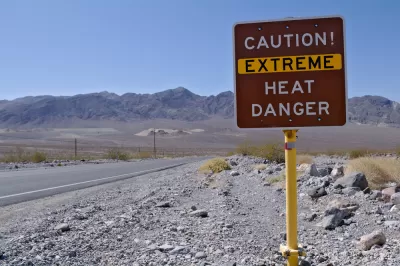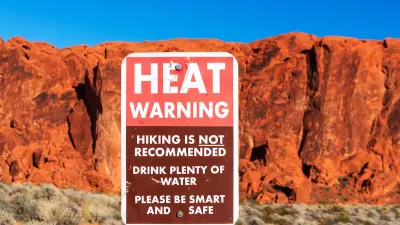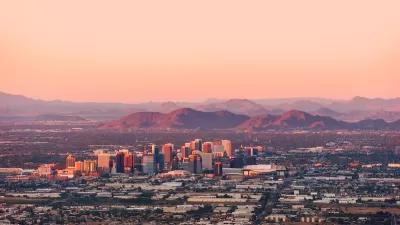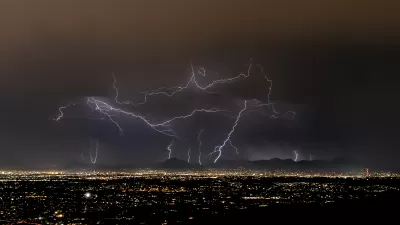A new UCLA study examines how formal and informal cooling centers are being used in Los Angeles County.

As climate change makes heat waves longer and more severe, people turn to both formal and informal cooling centers for relief in Los Angeles County. Formal cooling centers are typically offered at libraries, parks, and other public facilities. Informal ones are places like shopping centers, coffee shops, and other indoor spaces with AC. As reported in this article by David Colgan, a new UCLA study published online in the journal Applied Geography uses smartphone data to examine for the first time how formal and informal cooling centers are being used in L.A. County.
The study reveals that:
- About 20 percent of the population uses cooling centers in the county.
- The vast majority of those who visit cooling centers use shopping malls and other informal cooling centers; far fewer visit official cooling centers.
- When temperatures reach or exceed 95 degrees, the cooling centers that see the greatest increase in visits are those located near public transit stops.
- For people without automobiles, the elderly and other disadvantaged groups, official cooling centers may be the only practical option.
To reach their findings, the researchers used smartphone data that was anonymized and aggregated, which eliminates the possibility of revealing any specific locations for a particular smartphone. The data were acquired from Outlogic, a private location data provider that collects data on consenting users of third-party mobile phone applications.
The study offers several recommendations for decision and policy-makers, including placing more cooling centers in underserved neighborhoods where residents are more reliant on them, placing centers close to transit stops, and making cooling centers a part of more comprehensive strategies to mitigate extreme heat exposure.
For more information, please read the source article.
FULL STORY: Beating the heat in L.A.: County’s ‘informal’ cooling centers are used more than official ones

Alabama: Trump Terminates Settlements for Black Communities Harmed By Raw Sewage
Trump deemed the landmark civil rights agreement “illegal DEI and environmental justice policy.”

Study: Maui’s Plan to Convert Vacation Rentals to Long-Term Housing Could Cause Nearly $1 Billion Economic Loss
The plan would reduce visitor accommodation by 25% resulting in 1,900 jobs lost.

Planetizen Federal Action Tracker
A weekly monitor of how Trump’s orders and actions are impacting planners and planning in America.

Waymo Gets Permission to Map SF’s Market Street
If allowed to operate on the traffic-restricted street, Waymo’s autonomous taxis would have a leg up over ride-hailing competitors — and counter the city’s efforts to grow bike and pedestrian on the thoroughfare.

Parklet Symposium Highlights the Success of Shared Spaces
Parklets got a boost during the Covid-19 pandemic, when the concept was translated to outdoor dining programs that offered restaurants a lifeline during the shutdown.

Federal Homelessness Agency Places Entire Staff on Leave
The U.S. Interagency Council on Homelessness is the only federal agency dedicated to preventing and ending homelessness.
Urban Design for Planners 1: Software Tools
This six-course series explores essential urban design concepts using open source software and equips planners with the tools they need to participate fully in the urban design process.
Planning for Universal Design
Learn the tools for implementing Universal Design in planning regulations.
Caltrans
Smith Gee Studio
Institute for Housing and Urban Development Studies (IHS)
City of Grandview
Harvard GSD Executive Education
Toledo-Lucas County Plan Commissions
Salt Lake City
NYU Wagner Graduate School of Public Service





























